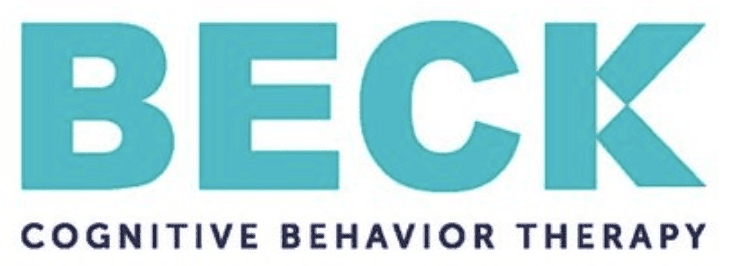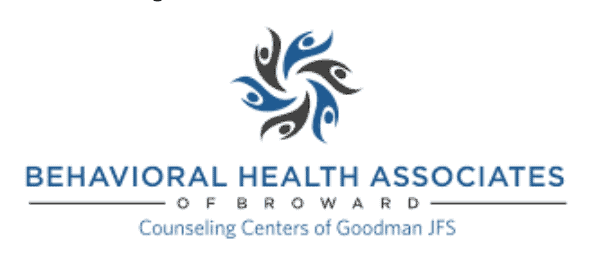If you are considering a career in therapy and want to know more about the CBT training options out there, then it’s very important to have a clear picture of exactly what learning CBT involves. You also need to consider what it is like to be a CBT therapist, and know exactly how you want to train so you can make the right choice.
There is no one size fits all when it comes to choosing a CBT training course. There are various factors to consider before you commit your time and money to a path into the career.
That’s why in this article, we will answer all your questions about to how to become a cognitive behavioral therapist. You’ll also find out what it is like to have a career in therapy, and how to choose the best training course for you.
You will learn:
- What is cognitive behavioral therapy?
- How does cognitive behavioral therapy work?
- What is cognitive behavioral therapist salary?
- How long does it take to become a cognitive behavioral therapist?
- The top 4 CBT training and certification courses
- Cognitive behavioral therapy career alternatives
Let’s get started with finding out exactly what Cognitive Behavioural Therapy is.
What is Cognitive Behavioral Therapy?
Cognitive behavioral therapy, or CBT, is a type of psychotherapy. These therapists help patients recognize and correct thought patterns that are causing distress in their lives, or interfering with their day-to-day activities. It can be used to help treat anxiety, depression, alcohol abuse and more. In fact, research indicates that CBT can lead to increases in a person’s quality of life and functioning.
CBT is based on the following core concepts:
- Psychological issues are partially due to unhelpful thought patterns.
- Psychological issues are partially due to learned and unhelpful behaviors.
- Individuals with psychological issues can learn and adapt better ways to cope. In turn, this would help improve their life and provide relief from their symptoms.
How does cognitive behavioral therapy work?
Essentially, CBT aims to help change a person’s behavioral and thinking patterns to help them change the way they feel about a situation and overcome difficulties.
Cognitive behavioral therapists use a variety of techniques to achieve this. The exact techniques used may depend on the person, their situation, and what is causing their distress.
Frequently, the goal is to develop various coping strategies. Some examples of techniques used include guided discovery, cognitive reframing, exposure therapy, journaling, role playing, and relaxation techniques.
What is the difference between cognitive therapy, behavioral therapy, and cognitive behavioral therapy?

Cognitive therapy
Cognitive therapy is a therapeutic approach falling under a wide range of therapies. Occasionally, this term is used in place of cognitive behavioral therapy, yet they can be categorized as two different approaches.
Cognitive therapy targets a person’s thoughts and emotions, changing how they think and feel about a situation. In other words, it challenges a person’s perceptions, helping them see situations in a more positive light. This type of therapy focuses more on how people think. Whereas, cognitive behavioral therapy focuses on the way people think and behave.
Behavioral therapy
Behavioral therapy is focused on changing people’s unhealthy behaviours. It is based on the idea that all behaviours are learned, and destructive behaviours can be changed. Examples of this include desensitization and exposure techniques that are often used to treat phobias. A client is taught to replace a fear response with the relaxation response. A person is first taught how to do relaxation techniques. With time, a client will gradually be exposed to the object of their phobia in order to practice this technique.
Cognitive behavioral therapy
Cognitive behavioral therapy combines both behavioral and cognitive therapy. CBT addresses the way a person thinks and their behavior. The client learns tools relating to both types of therapy, which can help them address their issue from a holistic perspective. It is a more rounded approach to resolving multiple issues. Occasionally, an individual may go through various types of therapy until they find one that works.
What is the difference between CBT and TF CBT?
TF CBT, or trauma-focused cognitive behavioral therapy, is a type of CBT that helps people overcome early trauma. For instance, it is particularly useful in addressing post-traumatic stress disorder (PTSD) or mood disorders as a result of a traumatic incident, such as abuse or grief.
Essentially, TF CBT is focused on dealing with trauma. It can be performed on children, families, and adolescents. In many cases TF CBT is used when working with children and family therapy techniques are frequently used to support the process. CBT approaches help the person address and overcome negative thinking patterns and behaviors. Meanwhile, family therapy techniques are used to look at how family dynamics or family members are further exacerbating the problem.
How to Become a Cognitive Behavioral Therapist

Becoming a cognitive behavioral therapist is a very rewarding career. This is not only limited to the reward associated with helping others. Cognitive behavioral therapists can expect to make $45,000 per year as their base salary. For those with Ph.D. degrees choosing to work in scientific research institutions or setting up their own practice, salary can go up to $100,000 and more.
A cognitive behavioral therapist salary may vary based on where you are situated. Those located in busy metropolitan areas are more likely to make more.
So how do you get certified? What is involved in CBT training? What are the steps you need to take to become a cognitive behavioral therapist?

How long does it take to become a CBT therapist?
Becoming a CBT therapist can take over 6 years to achieve, if not longer. It is often recommended that after an undergraduate degree and graduate degree is earned that a doctorate also be obtained.
Yet, there are also various other professions that use CBT methods and techniques. This includes professions such as life coaches or NLP practitioners. These professions do not require intensive training or lengthy education. This means that you can take a CBT training course and learn all the basic techniques you can then use in another career.
Taking the CBT training course by itself, however, does not make you automatically eligible to become a CBT therapist.
Can CBT be self-taught?
If you are not completely prepared to invest in your training, you can of course learn basic CBT. You can do this through the use of books, videos, and online resources. However, this doesn’t mean you are able to be certified to practice. It will not be possible to practice CBT as a career until you have received your formal training and qualifications.
How much does it cost to become a CBT therapist?
Depending on which educational facility you attend, becoming a CBT therapist can cost tens of thousands of dollars. This is especially true once you add up your undergraduate and graduate degree. It is crucial to financially plan and map it out, as you would for any university-level program.
How do I get CBT certified?
Step 1 – Earn a Bachelor’s degree
The first step toward becoming a cognitive behavioral therapist involves earning a four-year bachelor’s degree. Usually, individuals choose a bachelor’s degree associated with social work or mental health. This can help build your initial foundation of understanding how humans work.
Step 2 – Earn a Master’s degree
You must complete a master’s degree in psychology or social work. Many individuals also complete a doctorate degree. However, this is not required.
Step 3 – Get your license
While there is no specific licensing body for CBT, you must obtain a state license to practice therapy or psychotherapy. Most states require 2000 to 4000 hours of clinical experience, as well as passing the state exam before you can become fully licensed. After you pass the exam, you can then apply for your license in your residing state.
Step 4 – Get your accreditation
To get accredited, you must undergo specialized CBT training. The first part of this must be done under the supervision of an experienced and certified cognitive behavioral therapist. This training is mandatory before you can apply for a CBT training course and CBT certification. However, the hours required beforehand and the training required varies from institution to institution.
For instance, the National Association of Cognitive Behavioral Therapists in the U.S (NACBT), requires you to have at least six years of experience in cognitive behavioral therapy after a master’s degree to apply for registration in a training course. On the other hand, the Academy of Cognitive Therapy (ACT) only requires one year of clinical and supervised experience. You may need to have had at least ten patients before application for training and certification is applicable.
The Top 4 CBT Training and Certification Courses

Where should you take CBT training? Below, we explore the top 4 CBT training and certification courses available. The best part? These courses are online, meaning you can complete them in your own time. However, all these programs require clinical experience and a master’s degree.
These courses were rated based on their time, cost, availability, and the number of years the organization has been around for.
1. The Beck Institute Cognitive Behavioral Therapy

The Beck Institute was founded by Aaron Beck, the founder of CBT, and his daughter. The institute offers CBT courses many times a year online, giving you ample opportunity to enroll.
The Essential of CBT course is only 8 hours long, with other more specialized courses consisting of 15-16 hours of coursework. Their prices are not available online unless you inquire into their programing and courses. However, the Beck Institute’s reputation makes it worth looking into.
2. The Massachusetts General Hospital CBT Online Program

At only $295 for non-physician or doctor-level professionals, this course consists of 4 weeks of classes. Yet, you must complete all course material within those 4 weeks. This is good for individuals who are less internally-motivated and need deadlines.
They also offer courses at various times throughout the year, as well as offer further specialized CBT courses after your initial completion of the foundational program. You also have access to live weekly chats to help support you through the course’s entirety.
3. NACBT Training

With continued education programs costing around $250, the NACBT offers a variety of at-home programs that you can do in your own time. You complete your exam for certification as you listen to the CD. For the NACBT training programs, they claim to offer the same education and training as a live seminar, except you do not have to commute or pay high prices for in-person training.
4. Behavioral Health Associates
For intensive CBT training, the Behavioral Health Associates offer CBT training from March until December. The program costs $1,400, and you must register by mid-February to grab a spot. During each month of this program, an email is sent out with course material, audio, and downloads. The mp3 files make it easy to listen to the course almost anywhere. You also have easy access to your instructors via email.
CBT Training for Other Professions
Interestingly, there is a ton of CBT training available for other professions, such as life coaches. You can obtain CBT training through Udemy with Kain Ramsay. This specific course includes 52 hours of video, 34 articles, over 300 downloadable resources, and you receive certification upon completion. It also comes in at a very low cost of only $27.99. This training course is further offered in English and Italian. It is useful for parents, teachers, doctors, and more. You can also purchase and start this course at any time – meaning you do not have to wait for a start date.
Yet, this course does not provide CBT certification for therapists, meaning you will not become a cognitive behavioral therapist by taking this course. Instead, it aims to provide professionals, outside of psychotherapy, training on CBT so they can include it in their practices.
How To Know if CBT is Right For You?

You are interested, but you are a little unsure. Ideally, when becoming a cognitive behavioral therapist, you should be able to handle the possible emotional baggage that comes with it. People will come to you with real problems. It can be tough at times.
Most cognitive behavioral therapists are easily able to offer the right levels of compassion and empathy. You should have excellent listening, organizational, and communication skills. Sound like you? You might be on the right path!
Further, becoming a cognitive behavioral therapist allows you to start your own practice and create your own hours and rates. There is a certain level of freedom that comes with it.
However, be aware of the time and money investment involved in becoming a cognitive behavioral therapist. You have to be committed to this chosen career path since it takes many years to complete.
CBT Alternatives

Maybe you are not completely sold on CBT. It is something you are simply thinking about. CBT requires a lengthy educational background. This requires completion of all the levels of study and as aforementioned, investing a lot of time and money into becoming a CBT therapist. You are weighing your options, and there are plenty of them. In fact, there are a ton of shorter paths to similar careers – ones where you are helping others and transforming their lives.
Rapid Transformational Therapy® (RTT®), is an alternative you should consider.
A world-renowned speaker, therapist, and bestselling author, Marisa Peer created RTT over the last 30 years, combining the best techniques in behavioral cognitive therapy, hypnotherapy, psychotherapy, NLP, and neuroscience. Together, these techniques form the most efficient way to help a person overcome distress and negative thinking patterns or behaviors in their life.
Becoming a Rapid Transformational therapist offers a financially rewarding career, as well as an excellent path to help others.
As part of the training course, Marisa Peer is also offering live training elements, where you get the chance to meet her in person and practice your skills with the help of her expert training team. This hypnotherapy training is available at a variety of locations, including London, Florida, and California.
Want to learn more about RTT? Download the free RTT Course Prospectus. Pave your way toward a fulfilling and satisfying career, and discover how you can help others transform their lives in the best and most effective way possible.




